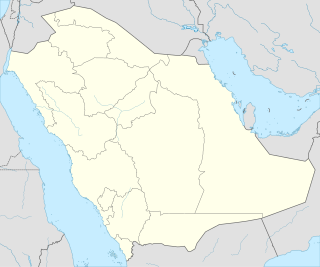
Abu Bakr Abdullah ibn Uthman Abi Quhafa, was through his daughter Aisha, a father-in-law of the Islamic prophet Muhammad, as well as the first caliph of Islam. He is known with the honorific title Al-Siddiq by Muslims.

Uthman ibn Affan, also spelled by the Turkish and Persian rendering Osman, was a second cousin, son-in-law and notable companion of the Islamic prophet Muhammad, as well as the third of the Rāshidun, or "Rightly Guided Caliphs". Born into a prominent Meccan clan, Banu Umayya of the Quraysh tribe, he played a major role in early Islamic history, and is known for having ordered the compilation of the standard version of the Quran. When Caliph Umar ibn al-Khattab died in office aged 59/60 years, Uthman, aged 64/65 years, succeeded him and was the second-oldest to rule as Caliph.

Ali ibn Abi Talib was a cousin, son-in-law and companion of the Islamic prophet Muhammad. He ruled as the fourth Rightly Guided caliph from 656 until his assassination in 661 and is one of the central figures in Shia Islam, being regarded as the rightful immediate successor to Muhammad and the first Imam by all branches of Shia Muslims. He is the son of Abu Talib and Fatimah bint Asad, the husband of Fatimah al-Zahra, and the father of Hasan, Husayn and Zaynab.
Zaidiyyah, Zaidism, or Zaidi Shi'ism, occasionally known as Fiver Shias, is one of the Shia sects closest in terms of theology to the Ibadi and Mutazila schools. Zaidiyyah emerged in the eighth century from Shi'a Islam. Zaidis are named after Zayd ibn ʻAlī, the grandson of Husayn ibn ʻAlī and the son of the fourth Imam Ali ibn 'Husain. Followers of the Zaydi Islamic jurisprudence are called Zaydi Shia and make up about 25% of Muslims in Yemen, with the greatest majority of Shia Muslims in that country being of the Zaydi school of thought.

The Rashidun Caliphs, often simply called, collectively, "the Rashidun", are, in Sunni Islam, the first four caliphs (successors) following the death of the Islamic prophet Muhammad, namely: Abu Bakr, Umar, Uthman ibn Affan, and Ali of the Rashidun Caliphate (632–661), the first caliphate. The fifth caliph, Hasan ibn Ali, is sometimes also considered to be Rashidun as well, but since he ruled for merely a six month period, he is not mentioned categorically. It is a reference to the Sunni imperative "Hold firmly to my example (sunnah) and that of the Rightly Guided Caliphs".

A caliphate or khilāfah is an Islamic state under the leadership of an Islamic ruler with the title of caliph, a person considered a politico-religious successor to the Islamic prophet Muhammad and a leader of the entire Muslim world (Ummah). Historically, the caliphates were polities based on Islam which developed into multi-ethnic trans-national empires. During the medieval period, three major caliphates succeeded each other: the Rashidun Caliphate (632–661), the Umayyad Caliphate (661–750), and the Abbasid Caliphate (750–1517). In the fourth major caliphate, the Ottoman Caliphate, the rulers of the Ottoman Empire claimed caliphal authority from 1517 and maintained Sunni Islam as the official religion. Throughout the history of Islam, a few other Muslim states, almost all hereditary monarchies, such as the Abbasid caliphs under protection of the Mamluk Sultanate (Cairo) and the Ayyubid Caliphate, have claimed to be caliphates. The first caliph was Abu Bakr and the last caliph was Abdulmejid II.

The Nahj al-Balagha is the most famous collection of sermons, letters, tafsirs and narrations attributed to Ali Ibn Abi Talib, cousin of Muhammad. Although it was collected by Al-Sharif al-Radi, a Shia scholar in the 10th century AD, the author of the book is Alli Ibn Abi Talib himself. Known for its eloquent content, it is considered a masterpiece of literature in Shia Islam.

The succession to Muhammad is the central issue that split the Muslim community into several divisions in the first century of Islamic history, with the most prominent among these sects being the Shia and Sunni branches of Islam. Shia Islam holds that Ali ibn Abi Talib was the appointed successor to the Islamic prophet Muhammad as head of the community. Sunni Islam maintains Abu Bakr to be the first leader after Muhammad on the basis of election.

Fadak was a garden oasis in Khaybar, a tract of land in northern Arabia; it is now part of Saudi Arabia. Situated approximately 140 km (87 mi) from Medina, Fadak was known for its water wells, dates, and handicrafts. When the Muslims defeated the people of Khaybar at the Battle of Khaybar; the oasis of Fadak was part of the bounty given to the Islamic prophet Muhammad. Fadak is said to have become the object of dispute by a group of Muslims between Fatimah and the caliph Abu Bakr after Muhammad died.
Rafida broadly refers to Shīʿite Muslims who reject (rafḍ) the caliphates of the first two successors of the Islamic prophet Muḥammad: Abū Bakr and ʿUmar. Many Islamic scholars, however, have stated that the term Rāfiḍah cannot be applied to the Shīʿites in general but only to the extremists among them who believe in the divine right of ʿAlī to succeed Muḥammad and who condemn Abū Bakr and ʿUmar as unlawful rulers of the Muslim community. To the majority of the Shīʿite Muslims, who do not condemn Muḥammad’s immediate successors and only assert ʿAlī’s right to the caliphate over Muʿāwiyah, the term Rāfiḍah is derogatory, coined by their opponents to cast the shadow of extremism on them.
Tabarri is a doctrine that refers to the obligation of disassociation with those who oppose God and those who caused harm to and were the enemies of the Islamic prophet Muhammad or his family. As Shi'as believe, Imamate is the inheritor of Risala (apostleship), thus it is the protector of Islam. Muhammad introduced them (Imams). Later every Imam introduced and stipulated the next Imam. So, people who were obstacles to the Imamate and implementation of the true form of Islam and equally the people who were the enemies of Ahl al-Bayt are the enemies of God and it is necessary for all believers to dissociate from them.

Ali was the cousin and son-in-law of the Islamic prophet Muhammad, and a member of the Ahl al-Bayt. According to Shias, Ali was the first Imam who is believed to be the rightful successor to Muhammad, divinely appointed successors of Muhammad who are claimed by the Shias. Although Ali was regarded, during the lifetime of Muhammad, as his initial successor, it would be 25 years before he was recognized with the title of Caliph (successor). According to the status of Ali (AS) it is believed he is infallible and sinless and is one of The Fourteen Infallibles of the household of Muhammed.

Muhammad's inheritance is a well-documented and controversial topic, both then and at the present.
Shi‘a Islam, also known as Shi‘ite Islam or Shi‘ism, is the second largest branch of Islam after Sunni Islam. Shias adhere to the teachings of Muhammad and the religious guidance of his family or his descendants known as Shia Imams. Muhammad's bloodline continues only through his daughter Fatima Zahra and cousin Ali who alongside Muhammad's grandsons comprise the Ahl al-Bayt. Thus, Shias consider Muhammad's descendants as the true source of guidance. Shia Islam, like Sunni Islam, has at times been divided into many branches; however, only three of these currently have a significant number of followers, and each of them has a separate trajectory.

ʿĀʾishah bint Abī Bakr, also transcribed as Aisha or variants, was Muhammad's third and youngest wife. In Islamic writings, her name is thus often prefixed by the title "Mother of the Believers", referring to the description of Muhammad's wives in the Qur'an.
The Shi'a view of Aisha is generally unfavourable. This is primarily due to what they see as her contempt for the Ahl al-Bayt and her actions in the First Fitna of the time. Her participation in the Battle of the Camel is widely considered her most significant sign of such contempt. They also do not believe that she conducted herself in an appropriate manner in her role as Muhammad's wife. Several prominent Shia accounts even report that she, along with Hafsa, brought about Muhammad's death by giving him poison. Shi'a also consider Aisha to be a controversial figure because of her political involvement during her lifetime. Aisha came from a political family lineage, as she was the daughter of Abu Bakr the caliph. Aisha also played an active role in Muhammad's political life; she was known to accompany him to wars, where she learned military skills, such as initiating pre-war negotiations between combatants, conducting battles, and ending wars.
Islam is an Abrahamic monotheistic religion teaching that there is only one God (Allah) and that Muhammad is His last Messenger.

The Battle of the Camel, also known as the Battle of Jamel or the Battle of Basra, took place at Basra, Iraq on 7 November 656. The battle was fought between Ali ibn Abi Talib, who was the cousin and son-in-law of the Islamic prophet, Muhammad, and A'isha, Talhah and Zubayr who led the campaign aiming to avenge the killing of the third caliph Uthman. Marking the second chapter of the First Fitna, the fateful battle ended with a victory for Ali. Naturally, the view of the event and the actors differs between the two major sects, Sunnis and Shias. The Sunnis hold that it was not the intention of either parties to engage in battle, and that the battle was an unforeseen consequence of interference from the rebels involved in the killing of Uthman. On the other hand, the Shia believe the killing of Uthman was a pretext for Aisha and her followers to wage war against Ali.
Abu Musa Abd Allah ibn Qays al-Ash'ari, better known as Abu Musa al-Ash'ari was a companion of Muhammad and an important figure in early Islamic history. He was at various times governor of Basra and Kufa and was involved in the early Muslim conquest of Persia.
The Hashemite–Umayyad rivalry was a feud between the clans of Banu Hashim and Banu Umayya, both belonging to the Meccan Arab tribe of Quraysh, in the 7th and 8th centuries. The rivalry is important as it influenced key events in the course of early Islamic history.











